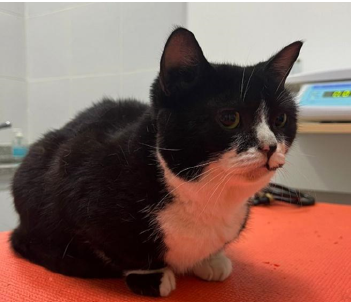Feline Hypothyroidism: Case Report
DOI:
https://doi.org/10.5281/zenodo.14055743Keywords:
EspañolAbstract
Among the most common endocrinopathies in felines, hypothyroidism is of low prevalence. The origins of hypothyroidism can be acquired or congenital, the latter being the most common cause in felines. It is caused by a failure in the development of the thyroid gland (thyroid dysgenesis) or by an altered production of thyroid hormone (thyroid dyshormonogenesis). The disorder can cause a variety of clinical signs, these are related to the dysfunction of physiological processes mediated by thyroid hormones, such as muscle and brain development, energy balance and normal growth, giving abnormalities in skeletal muscle development. To diagnose this disease, hormonal measurements are performed to detect a high concentration of thyroid hormones in the blood, that is, total thyroxine (total T4), triiodothyronine (T3), free thyroxine (free T4) and thyroid-stimulating hormone (TSH). Free T4 is the fraction of thyroxine not bound to protein, a biologically active fraction, considered the most sensitive for the diagnosis of hypothyroidism. This publication describes the case report of a female feline, treated at the Small Animal School Hospital, of the Faculty of Veterinary Sciences of the National University of La Pampa, its diagnostic investigation and treatment recommendations.
Downloads
References
Baral R.M.; Peterson M.E. (2014). Trastornos de la Glandula Tiroides. In Intermédica (Ed.), El Gato. Medicina
Clínica y Tratamiento (pp. 687–702).
Basu, G., & Mohapatra, A. (2012). Interactions between thyroid disorders and kidney disease. Indian Journal of
Endocrinology and Metabolism, 16(2), 204. https://doi.org/10.4103/2230-8210.93737
Cazaux, N., Meder, A. R., García, M., & Miguel, M. C. (2021). Hipertireoidismo felino: Diagnóstico e tratamento de
uma das endocrinopatologias mais frequentes em felinos adultos / Feline hyperthyroidism: Diagnosis and
treatment of one of the most frequent endocrinopathologies in adult felines. Brazilian Journal of Animal and
Environmental Research, 4(4), 5852–5871. https://doi.org/10.34188/bjaerv4n4-082
Feldman, E., Nelson, R., Reush, C., & Scott-Moncrieff, C. (2015). Canine & Feline Endocrinology (4 ed.). Elsevier.
Golinelli, S., Tardo, A. M., Vecchiato, C. G., Diana, A., Fracassi, F., Guido, E. A., & Perfetti, S. (2022). Evaluation of
Weight Gain, Clinicopathological and Radiographic Changes after Early Diagnosis and Treatment of Congenital
Hypothyroidism in Cats. Veterinary Sciences, 9(3). https://doi.org/10.3390/vetsci9030140
Gommeren, K., Hoek, I. Van, Lefebvre, H. P., Benchekroun, G., Smets, P., & Daminet, S. (2009). Effect of thyroxine
supplementation on glomerular filtration rate in hipothyroid dogs. Journal of veterinary internal medicine, 23(4),
–849. https://doi.org/10.1111/j.1939-1676.2009.0331.x
Iturriaga, M. P., Cocio, J. A., & Barrs, V. R. (2020). Cluster of cases of congenital feline goitrous hypothyroidism in a
single hospital. Journal of Small Animal Practice, 61(11), 696–703. https://doi.org/10.1111/jsap.13231
Peterson, M. E. (2013). More Than Just T4: Diagnostic testing for hyperthyroidism in cats. Journal of Feline Medicine
and Surgery, 15(9), 765–777. https://doi.org/10.1177/1098612X13500426
Sánchez, M. L., & Saldeña, E. L. R. (1988). Hipotiroidismo congénito con deterioro de la función renal en un felino
doméstico. Descripción de un caso clínico. Anuales de La Universidad de Chile, 18, Pág. 148-155-155.
Traas, A. M., Abbott, B. L., French, A., & Giger, U. (2008). Congenital Thyroid Hypoplasia and Seizures in 2
Littermate Kittens. Journal of Veterinary Internal Medicine., 22 (6), 1427–1431. https://doi.org/doi:10.1111/
j.1939-1676.2008.0203.x.

Published
How to Cite
Issue
Section
License
Copyright (c) 2024 Ab Intus

This work is licensed under a Creative Commons Attribution-NonCommercial 4.0 International License.

















